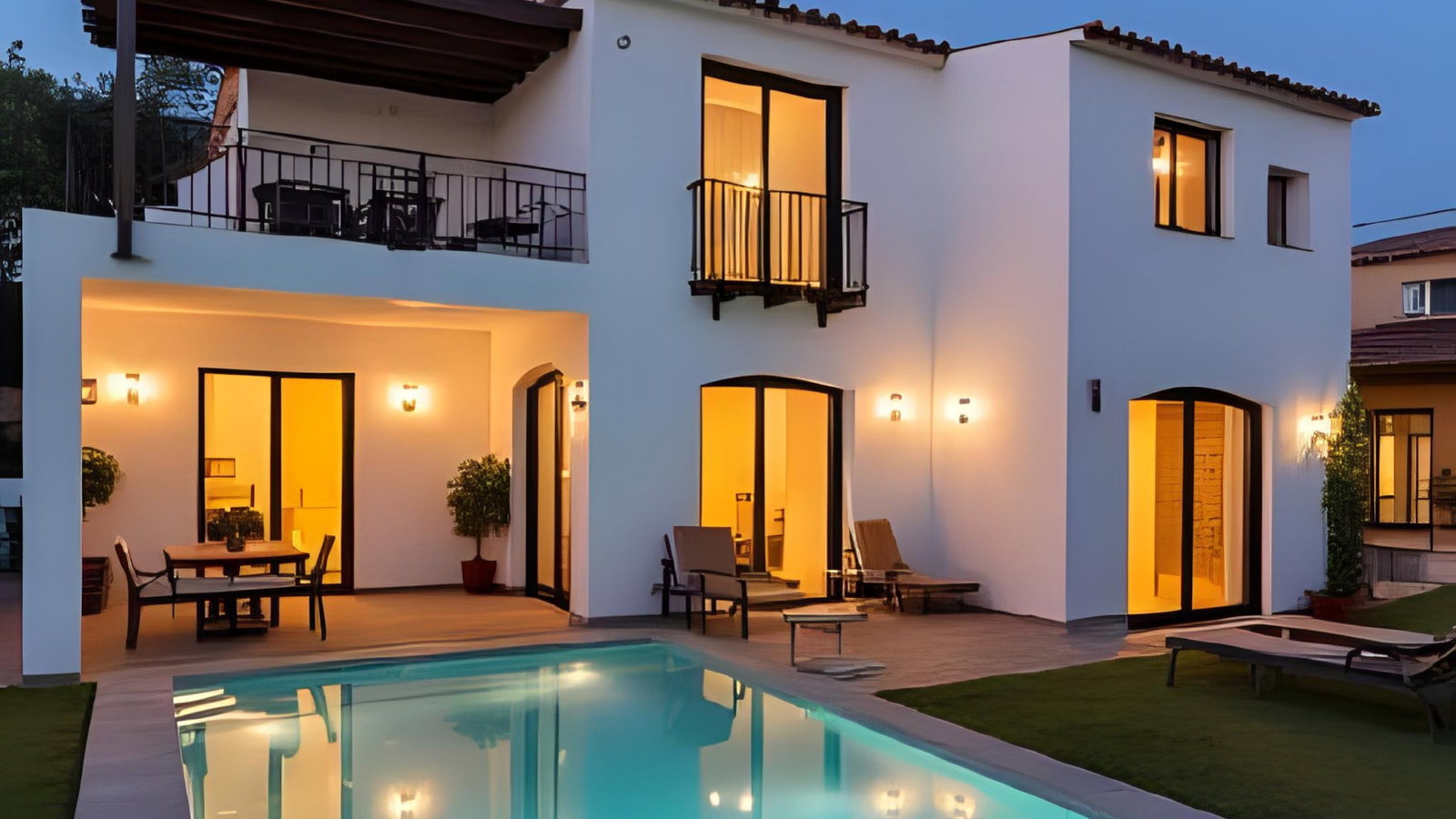-
By iQ
- October 20, 2025
- No Comments
Are you dreaming of owning a charming villa in the Algarve, a city apartment in Lisbon, or a countryside retreat in Portugal? You’re not alone. Portugal’s stunning coastline, rich culture, and welcoming communities have made it one of Europe’s most popular destinations for international property buyers. If you’re considering buying a house in Portugal as a foreigner, this comprehensive guide covers everything you need to know for a smooth property purchase in 2025.
Can Foreigners Buy Property in Portugal?
Yes! There are no restrictions on foreigners buying property in Portugal. Whether you’re an EU/EEA citizen or from outside Europe — such as the US, UK, Canada, or China — you have the same rights as Portuguese nationals to purchase, own, and resell freehold property.
Because of its open property market, Portugal remains highly attractive to expats, retirees, digital nomads, and international investors. The process is straightforward, but knowing the steps, legalities, costs, and potential pitfalls is crucial.
Why Buy a House in Portugal as a Foreigner?
Here’s why Portugal is so appealing:
- Affordable prices: Compared to other Western European countries, Portugal offers excellent value for money, especially outside Lisbon and Porto.
- Golden Visa Program: Investment in real estate was a popular route to residency (as of 2023, this applies only in some cases – always check latest rules).
- Tax incentives: Non-habitual resident (NHR) tax regime for eligible newcomers.
- Quality of life: Mild climate, low crime, beautiful landscapes, great food, and a laid-back lifestyle.
- Growing expat communities: Especially in the Algarve, Lisbon, and Porto.
Step-by-Step Guide to Buying a House in Portugal as a Foreigner
1. Get Your Portuguese Tax Number (NIF)
The NIF (“Número de Identificação Fiscal”) is necessary for any property transaction in Portugal. Foreigners can apply for a NIF at the local tax office (Finanças), bringing a valid passport and proof of address. Non-EU citizens must appoint a local tax representative.
2. Open a Portuguese Bank Account
You’ll typically need a local bank account to transfer funds and make payments related to the property purchase.
3. Find a Reputable Real Estate Agent
A good local agent who speaks your language and knows the market is invaluable, helping you:
- View suitable properties
- Understand local pricing
- Negotiate on your behalf
- Guide you away from common pitfalls
4. Legal Checks & ‘Due Diligence’
Before making an offer, work with a Portuguese lawyer (advogado) specializing in property purchases. They will check:
- The property’s legal title
- Boundaries and planning permissions
- License for usage (habitation license)
- Outstanding charges or debts
Pro Tip: Never pay a deposit or sign anything before your lawyer checks the documents!
5. Make an Offer and Sign the Promissory Contract
If your offer is accepted, you’ll sign a Contrato de Promessa de Compra e Venda (CPCV). This legally binding agreement details the terms, payment schedule, and deadline for completion. A deposit (usually 10-30%) secures the property.
If either party withdraws after this point, penalties will apply.
6. Final Deed (Escritura) and Registration
The final contract is signed in front of a notary. Here, you pay the remaining purchase price. After this, the property is registered in your name at the local Land Registry Office.
Costs When Buying a House in Portugal as a Foreigner
Besides the purchase price, you should budget for:
- IMT (Imposto Municipal sobre Transmissões): Property transfer tax (varies from 1% to 8%)
- Stamp Duty (Imposto de Selo): 0.8% of the purchase price
- Notary, Land Registry, and Legal Fees: ~1-2%
- Estate Agent’s Fee: Usually paid by the seller
Extra: Ongoing municipal property taxes (IMI), depending on your property type and location.
Financing Options: Can Foreigners Get a Mortgage in Portugal?
Yes – Many Portuguese banks offer mortgages to non-residents. In general:
- Foreign buyers may be able to borrow up to 70% of the property’s appraised value.
- Terms are typically 5–30 years.
- You’ll need to show proof of income, existing debts, and sometimes undergo a credit assessment in your home country.
Tip: Consult multiple lenders and consider hiring a mortgage broker.
What About Visas and Residency?
Buying a house in Portugal does not automatically grant you residency or a visa. If you want to live in Portugal:
- D7 Visa: For retirees and those with independent income.
- Digital Nomad Visa: For remote workers meeting income thresholds.
- Golden Visa (Check the 2025 status): Once available for property buyers, this program has been restricted for most residential purchases since October 2023, but exceptions and investment options in low-density areas or commercial properties may still exist.
Common Mistakes Foreigners Make When Buying in Portugal
- Failing to do proper legal checks or get expert advice.
- Underestimating taxes/fees or ongoing costs.
- Ignoring inheritance law impacts (Portugal’s system can differ).
- Not understanding property conditions—especially for older houses.
- Rushing without understanding local market trends.
Best Places to Buy a House in Portugal as a Foreigner
- Lisbon: Vibrant city life, great for investors, but prices are high.
- Porto: Dynamic, cheaper than Lisbon, strong expat growth.
- Algarve: Stunning beaches, popular with retirees, established international communities.
- Silver Coast: Coastal towns with authentic feel, lower prices than Algarve.
- Alentejo/countryside: Rustic retreats, excellent value for money.
FAQs About Buying a House in Portugal as a Foreigner
Q: Can I rent out my house when I’m not in Portugal?
A: Yes, but short-term rentals (Airbnb) may require a license (AL license), and some municipalities limit new ones due to housing pressure.
Q: Is new construction reliable?
A: Work only with reputable builders. Make sure all permissions and building licenses are in order.
Q: Can I buy and live year-round?
A: Yes, but check which visa or residency permit suits your situation.
Q: Do I need to speak Portuguese?
A: Not for the transaction itself if you hire a lawyer who speaks your language. But learning basics will help you settle in!
Should You Buy a House in Portugal as a Foreigner?
Buying a house in Portugal as a foreigner is possible, legal, and often straightforward—if you take your time, work with trusted professionals, and understand the local property market. Whether you’re after a holiday home, a rental investment, or a new life in Europe, Portugal remains one of the most attractive and accessible destinations for foreign property buyers in 2025.
Ready to start your journey? Find a good agent, get legal advice, and discover why so many foreigners are calling Portugal “home”!


